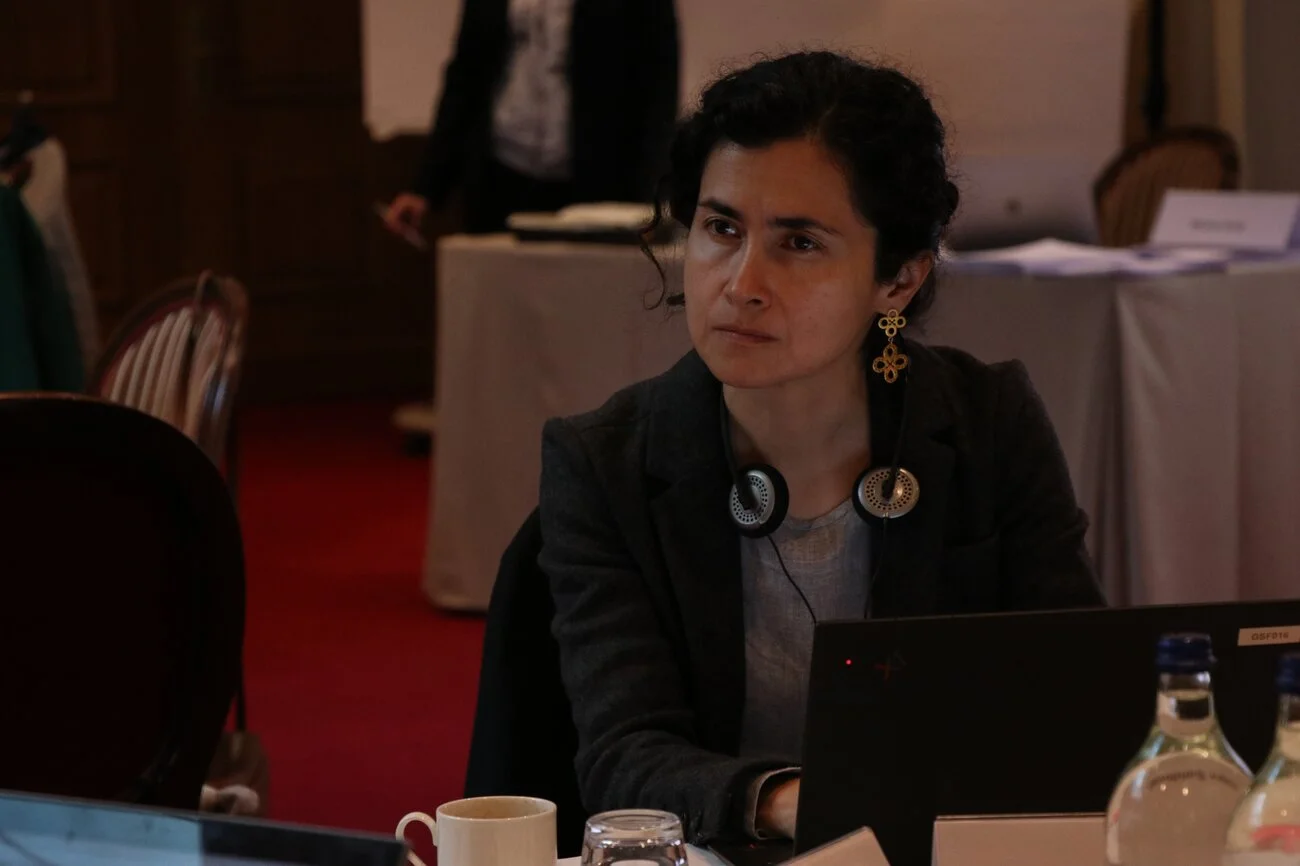How we work
Advocate
At the national level, we work with survivor organisations and civil society to support their advocacy efforts to raise awareness, strengthen reparation policies and practice, and challenge governments to embrace their responsibility to act.
Our advocacy priorities are for duty-bearers, international, and national stakeholders to:
1
Urgently act
Recognise that the needs and right to reparation of survivors must be addressed urgently, and operationalise and resource reparation programmes, even whilst conflict is ongoing.
2
Co-create
Recognise co-creation as a global standard of survivors’ participation for effective and adequate reparation.
3
Mobilise financing
Recognise that reparation is possible and affordable and can, in particular, be financed through repurposing of seized assets from perpetrators.
4
Include children as rights-holders
Explicitly address the right to reparation of children affected by conflict-related sexual violence, including education as a form of reparation, in reparation policies, strategies, and programmes.
Related content
Kinshasa Declaration
Read the powerful declaration made by conflict-related sexual violence survivors from across Africa, supported by GSF.
Guide
Learn how we offer expertise to those responsible for providing reparation.
This is a multistakeholder process. We share and reflect together around the major questions on domestic reparation programmes. We share experiences in other countries to come up with effective remedies to put in place.
— Clara Sandoval, GSF Director of Programmes

Our advocacy impact
Following the Kinshasa Survivors’ Hearing on Reparations held in the Democratic Republic of the Congo in November 2021, GSF supported the development of the Kinshasa Declaration on the Rights to Reparation and Co-Creation of Survivors and Victims of Conflict-Related Sexual and Gender-Based Violence. This Declaration, drafted by survivors from a range of African countries with the support of civil society organisations working with them, sets out their vision for all survivors of conflict-related sexual violence. To build on this initiative, GSF is supporting projects by survivors from across the continent with the aim of implementing the Declaration in their countries. In parallel, our 2022 high-level United Nations (UN) General Assembly event put co-creation on the international agenda.
Together with partners, we have developed innovative proposals and hosted international forums to strengthen international frameworks and commitments to fund reparations through perpetrators’ wealth, such as repurposing fine monies and confiscating frozen assets or assets implicated in sanctions violations. The sustained efforts of GSF and civil society organisations led to provisions on asset recovery in the recently adopted Ljubljana-Hague Convention on International Cooperation in the Investigation and Prosecution of the Crime of Genocide, Crimes against Humanity, War Crimes and other International Crimes, also known as the MLA Treaty. This is paving the way for reparations. We’re continuing this work through drawing lessons and best practices from different countries and advocating for transparency of funds frozen under sanctions, stronger UN systems, international frameworks, and legal reforms to allow for the repurposing of perpetrators’ assets for the benefit of survivors.
In many countries we provide support to civil society and survivors networks to engage in national advocacy initiatives. We, along with our partner Rights for Peace, supported the South Sudan National Survivor Network in convening a meeting with the UN Special Representative of the Secretary General on Sexual Violence in Conflict and the UN Commission on Human Rights in South Sudan, which created a space for survivors to share their concerns and priorities and continued dialogue on the development and implementation of reparation policies.